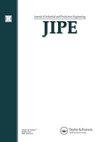Nonlinear cointegration analysis of China’s money demand function stability
IF 4.6
Q2 ENGINEERING, INDUSTRIAL
Journal of Industrial and Production Engineering
Pub Date : 2023-10-27
DOI:10.1080/21681015.2023.2270990
引用次数: 0
Abstract
ABSTRACTIn this study, an analytical framework of non-linear co-integration theory is applied to empirically analyze the Chinese money demand function data from Q1 1994 to Q3 2017. The results show that it neglects non-linearities in all variables and that M1 and M2 have long-run nonlinear equilibrium relationships with real GDP, interest rate, inflation rate, the effective exchange rate of RMB, and trade dependence. Further, an enhanced BP neural network is applied to estimate the long-run equilibrium equation, and it is found that the marginal coefficients of M2 are more stable than those of M1. It is suggested that although China was much less dependent on foreign trade since the 2008 financial crisis, the RMB-USD exchange rate and financial variables outside China had a slight impact on China’s money demand because of its closed financial market so that the financial crisis had little effect on China’s financial system.KEYWORDS: Non-linear co-integrationrank testrange testenhanced BP neural networkmoney demand functionstability Disclosure statementThe authors have no relevant financial or non-financial interests to disclose.Notes1. Data on money demand-related variables from 1994 Q1 to 2017 Q3, real and nominal effective exchange rates were obtained from the BIS website, GDP, interest rates, money supply, and RMB-USD exchange rate were obtained from the CEI database.Additional informationFundingThis work was supported by the 2023 Hunan Natural Science Foundation Joint Fund Project: Research on Key Technologies for Measuring, Enhancing, and Visualizing the Competitiveness of Hunan Huaihua International Inland Port under the RCEP Framework (2023JJ50459).Notes on contributorsXiaohui ShuXiaohui Shu is a professor of business administration at Huaihua University. His main research areas of interest is in Economic Statistics, Time Series Analysis, and Regional Economic Development. He has published many academic articles in peer-reviewed recommended journals and has led multiple fund projects.Jinqi SongJinqi Song is an associate professor at Jiangxi Normal University. His research interests include economic statistics, time series analysis, and their applications. He has published multiple academic articles in peer-reviewed journals and has also led several funded research projects.Qinli LeiQinli Lei is a professor in the Department of Statistics at the School of Economics, Jinan University. His primary research interests include sampling surveys, statistical analysis methods, and economic growth. He has published over 50 academic articles in peer-reviewed journals. Additionally, he has successfully led and completed multiple national and provincial research projects, and has also authored more than 10 books and university textbooks.Yangkuo LiYangkuo Li graduated from Jishou University in 2019 with a master's degree. His research interests include statistical modeling and big data analysis. He has done a lot of empirical research in the fields of economics, statistics, and related disciplines, and has published many research papers in academic journals.中国货币需求函数稳定性的非线性协整分析
摘要本文运用非线性协整理论的分析框架,对1994年第一季度至2017年第三季度的中国货币需求函数数据进行实证分析。结果表明,该模型忽略了所有变量的非线性,M1和M2与实际GDP、利率、通货膨胀率、人民币有效汇率和贸易依存度之间存在长期非线性均衡关系。进一步,利用增强的BP神经网络估计长期平衡方程,发现M2的边际系数比M1的边际系数更稳定。本文认为,虽然2008年金融危机以来中国对外贸易依存度大大降低,但由于中国金融市场的封闭性,人民币对美元汇率和境外金融变量对中国货币需求的影响较小,因此金融危机对中国金融体系的影响较小。关键词:非线性协整秩奇异检验增强BP神经网络货币需求函数稳定性披露声明作者无相关财务或非财务利益需要披露。1994年第一季度至2017年第三季度的货币需求相关变量数据、实际和名义有效汇率数据来自国际清算银行网站,GDP、利率、货币供应量和人民币兑美元汇率数据来自CEI数据库。2023年湖南省自然科学基金联合基金项目:RCEP框架下湖南怀化国际内河港竞争力测度、提升与可视化关键技术研究(2023JJ50459)。作者简介舒晓辉,怀化大学工商管理学教授。主要研究方向为经济统计、时间序列分析、区域经济发展。他在同行评议的推荐期刊上发表了多篇学术文章,并主持了多个基金项目。宋金琦,江西师范大学副教授。主要研究方向为经济统计、时间序列分析及其应用。他在同行评议的期刊上发表了多篇学术文章,并领导了几个资助的研究项目。雷勤丽,暨南大学经济学院统计系教授。他的主要研究兴趣包括抽样调查、统计分析方法和经济增长。他在同行评议期刊上发表了50多篇学术文章。主持并完成多项国家级、省部级科研项目,著有专著和高校教材10余部。李杨国(音译)2019年毕业于吉首大学,获硕士学位。主要研究方向为统计建模和大数据分析。在经济学、统计学及相关学科领域进行了大量实证研究,并在学术期刊上发表了多篇研究论文。
本文章由计算机程序翻译,如有差异,请以英文原文为准。
求助全文
约1分钟内获得全文
求助全文
来源期刊

Journal of Industrial and Production Engineering
ENGINEERING, INDUSTRIAL-
CiteScore
7.50
自引率
6.70%
发文量
21
 求助内容:
求助内容: 应助结果提醒方式:
应助结果提醒方式:


